Senior Health Specialty Care
Specialty Care for Seniors
Whatever our patients’ specific needs — blood pressure management, falls or memory loss — our Senior Health team has the expertise to treat and manage these conditions. We provide specialty consultations for a range of conditions, including:
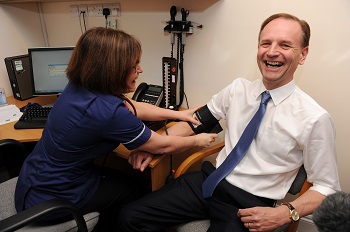 Blood pressure can change as you get older. It can be too high or too low,
and sometimes a change in medications, activity or diet can affect your
blood pressure. Changes in blood pressure can lead to other problems
including falls. Dr. Lewis Lipsitz, Chief of Gerontology, is a leading
researcher in this area and will diagnose the cause and develop a treatment
plan to help manage it.
Blood pressure can change as you get older. It can be too high or too low,
and sometimes a change in medications, activity or diet can affect your
blood pressure. Changes in blood pressure can lead to other problems
including falls. Dr. Lewis Lipsitz, Chief of Gerontology, is a leading
researcher in this area and will diagnose the cause and develop a treatment
plan to help manage it.
Your doctor will check your blood pressure several times on different days before making a diagnosis. You can also check blood pressure at home with a home blood pressure measurement device.
 Type 2 diabetes is highly prevalent and increasing in people over 65.
Because older adults with diabetes are also more at risk for several
conditions that may significantly influence quality of life, we closely
collaborate with Joslin Diabetes Center to not only keep diabetes under
control, but to also screen and treat conditions that can affect older
adults with diabetes such as depression, cognitive impairment, urinary
incontinence, falls and pain.
Type 2 diabetes is highly prevalent and increasing in people over 65.
Because older adults with diabetes are also more at risk for several
conditions that may significantly influence quality of life, we closely
collaborate with Joslin Diabetes Center to not only keep diabetes under
control, but to also screen and treat conditions that can affect older
adults with diabetes such as depression, cognitive impairment, urinary
incontinence, falls and pain.
In addition, you can keep control of diabetes by:
- Tracking glucose levels
- Making healthy food choices
- Getting exercise
Doctors advise older adults with diabetes to:
- Have annual eye exams
- Get yearly checks for kidney problems
- Get flu shots
- Check cholesterol regularly
- Care for your teeth and gums
- Check feet for sores, etc.
- Watch your blood pressure
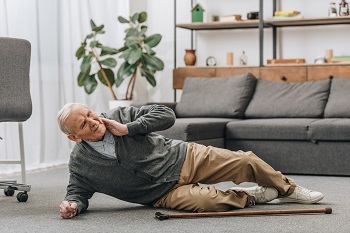 Many seniors experience problems with their balance. Being unsteady on your
feet can lead to falls, fainting spells, and walking difficulties. That’s
not all: imbalance and falls limit activities and make it impossible for a
person to live independently.
Many seniors experience problems with their balance. Being unsteady on your
feet can lead to falls, fainting spells, and walking difficulties. That’s
not all: imbalance and falls limit activities and make it impossible for a
person to live independently.
Dr. Lewis Lipsitz, a leading researcher in these areas, directs the Falls and Gait Imbalance program, which is devoted to the diagnosis and treatment of patients who are experiencing these issues.
We work closely with the rehabilitation program at Hebrew SeniorLife to provide specialized treatment for gait and balance problems, muscle weakness, strokes, and other conditions. Home safety evaluations and exercise programs are also offered.
A Checklist
If the answer is “yes" to any of these questions, discuss the symptom with your doctor:
- Do I feel unsteady?
- Do I feel as if the room is spinning around me?
- Do I feel as if I'm moving when I know I'm standing or sitting still?
- Do I lose my balance and fall?
- Do I feel as if I'm falling?
- Do I feel lightheaded, or as if I might faint?
If you think that you have a balance disorder, schedule an appointment with our specialists.
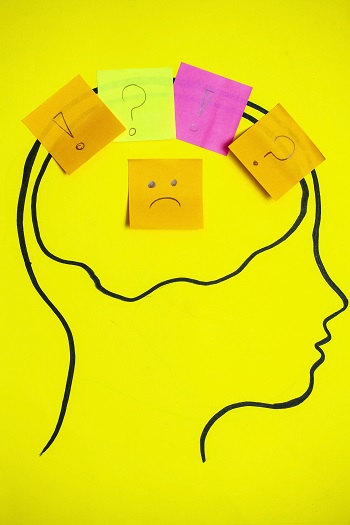 As one gets older, forgetfulness is pretty common. With changes occurring
in the aging brain, it may get tougher to learn new things or remember
information. Some memory problems are related to health issues that may be
treatable. An early diagnosis gives you more treatment options and can help
you prepare for the future.
As one gets older, forgetfulness is pretty common. With changes occurring
in the aging brain, it may get tougher to learn new things or remember
information. Some memory problems are related to health issues that may be
treatable. An early diagnosis gives you more treatment options and can help
you prepare for the future.
We provide comprehensive assessment, treatment and support programs for people with memory problems. Family members, patients or health care providers can make a referral to see one of our memory specialists for an evaluation. Learn more about what’s involved in your first memory evaluation visit.
Easy Ways to Stay Healthy and Maintain Memory and Mental Skills
- Plan tasks, make "to do" lists
- Use memory aids like notes and calendars
- Stay involved in activities and take up hobbies
- Stay active
- Limit the use of alcohol
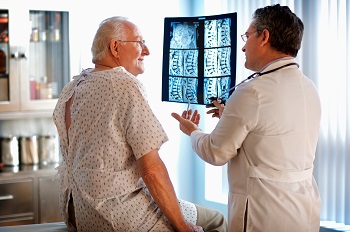 A surgery or a medical procedure gets more complicated as one gets older
because there are complex health conditions and medications involved. To
ensure a successful surgery and recovery, consult the Senior Health team to
screen and evaluate the patient’s overall health before surgery. We work
closely with the patient’s surgical team to make sure that pre- and
post-surgery care is well managed.
A surgery or a medical procedure gets more complicated as one gets older
because there are complex health conditions and medications involved. To
ensure a successful surgery and recovery, consult the Senior Health team to
screen and evaluate the patient’s overall health before surgery. We work
closely with the patient’s surgical team to make sure that pre- and
post-surgery care is well managed. Oftentimes, patients over 65 don’t find it easy to deal with the everyday
stressors related to aging. Depression is common among seniors. Symptoms of
depression often appear in patients who have other health conditions and
can be similar to symptoms of dementia. For instance, patients can
withdraw, cannot concentrate, and appear confused.
Oftentimes, patients over 65 don’t find it easy to deal with the everyday
stressors related to aging. Depression is common among seniors. Symptoms of
depression often appear in patients who have other health conditions and
can be similar to symptoms of dementia. For instance, patients can
withdraw, cannot concentrate, and appear confused.
Our team of psychiatrists and psychiatric social workers diagnose and treat both patients and their families. With the right diagnosis, treatment and support one can feel better and live a happy life.
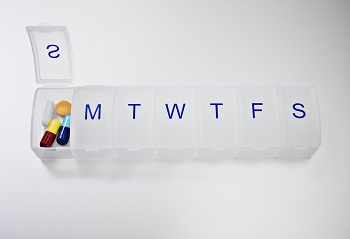 Typically, most seniors may need multiple medicines and supplements, which
mean it’s not always easy to stay on track. It’s also important to make
sure there are no drug interactions, no confusion about dosage and timing,
and that both the patient and caregivers have all the information they
need. Medicine management among seniors is one of the key influences of
good health and well-being.
Typically, most seniors may need multiple medicines and supplements, which
mean it’s not always easy to stay on track. It’s also important to make
sure there are no drug interactions, no confusion about dosage and timing,
and that both the patient and caregivers have all the information they
need. Medicine management among seniors is one of the key influences of
good health and well-being.
At BIDMC, our physicians help patients and caregivers coordinate and manage medications with ease. Our physicians and specialists work together across disciplines, discussing each drug prescribed and how it relates to a patient’s overall health, possible side effects and interactions with other drugs. We also look for the best options that not only improve the patient’s physical well-being, but also their total quality of life.
For a reminder of your medication details, patients can go to MyBILH Chart and check doctor’s notes under “Visits.”
Tips for patients and caregivers
- Make a list of all medications (even over-the-counter ones). Make sure that the list includes the prescribed dosage, timing and details such as “take before a meal” or “take on full stomach.”
- Keep a copy of this medication list in your wallet and some place in your home where it is easily accessible, maybe on the refrigerator.
- Call your physician if there is any confusion or questions about the medication.
- Organize your medicines and supplements — a pill box works best.
- Throw away old drugs that have expired or that you don’t need any more.
